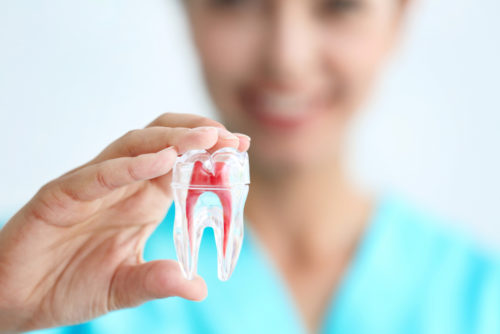Dentistry has long topped many “Best Job” lists, often regardless of criteria. Dentists make good money, appear to have decent job satisfaction, and work in an industry with consistent demand (almost everyone has teeth that need care). However, there is a serious investment of time and money in becoming a dentist, and something like this should always be considered carefully. This isn’t just the next few years of your life, it’s a lifelong career. Is dentistry worth it?
Table of Contents
Dentistry vs Medicine: What’s the Difference?
There is a lot of crossover between physicians and dentists. Both are healthcare professionals, require intense schooling, and revolve around patient care. However, dentists specialize in working with people’s teeth, while doctors have a much wider range of specialties. Further, specialties in medicine are often much more regulated, while dentists have more freedom in choosing what services they will perform in their practices.
For instance, if you need knee surgery you will go to a surgical specialist who works exclusively with knees or joints; if you need dental surgery, you may go to your regular dentist, be referred to another dentist who does more surgeries, or even see an orthodontist. Ultimately, while both professions are centered around people’s health, dentistry is specific enough to require its own separate schooling and practice.
How Long Does It Take to Become a Dentist?
In order to become a dentist, you’ll first have to earn a bachelor’s degree, usually in a science-related field, but as long as you meet the prerequisites for dental school, it’s fine. You’ll then have to take the Dental Admissions Test (DAT), which will be reported to your dental schools of choice, along with your GPA and application.
After you’ve been accepted, dental school takes four years full-time to complete. There are also accelerated programs that combine a bachelor’s and a doctoral degree into one, but eight years is the most traditional route. If you want to specialize in a specific area of dentistry, you’ll have to enroll in a postgraduate program, which may take up to six years.
Dentist vs Doctor: How Many Years of School
Medical school takes four years to complete as well. However, medical students also have a residency program that they are required to participate in if they hope to become a doctor. By contrast, after students finish dental school and pass the required certification tests, they are ready to practice.
Even if you specialize, you are looking at max fourteen years of schooling. Doctors can easily outstrip that if they specialize.
How Much Money Does a Dentist Make?
The average salary across all dentists in the US is $153,900. Your salary will depend upon your location, the demand in that area, whether you own your practice or not, and your degree of specialization.
Dentist vs Doctor: How Much You Earn
Doctors’ salary varies widely; some doctors can make $300-400 thousand a year. However, dentists will generally earn more than most doctors, especially family physicians and lower-tier specialists.
Pros of Being a Dentist:
There’s a reason that dentists consistently appear on “Best Job” lists. Being a dentist has a lot of advantages.
Autonomy
Many dentists are able to set their own hours. You could work four days a week if you want to. Dentists are known for being able to balance their personal and professional lives with relative ease, a feat in the healthcare world.
Money
Although you do have to work for it, you’ll be well compensated for your effort. Dentists can lead a very comfortable lifestyle provided that they manage their wealth well.
Right Level of Excitement
While being a dentist isn’t as exciting as being a firefighter or an emergency medicine doctor, you aren’t a paper pusher either. Being a dentist is a good balance between engaging and predictability. You likely won’t die from practicing dentistry, and you can minimize your stress level. At the same time, you’ll be presented with challenges every day to pique your interest.
Demand
Employment for dentists is expected to grow at 19 percent over the next few years. In a time when many people are struggling to find a job, having that sense of job security is a huge advantage.
Cons of Being a Dentists
All the same, we know that no job is perfect. Here are some of the negative aspects about being a dentist.
Lots of Schooling
You might be the world’s best student, but going that long in school can take a toll on you. Even if you believe you can push through eight years without a sweat, realize that all that schooling is a drain on your bank account as well. You’ll have to take out a lot of student loans that will follow you for a long time after graduation.
Dealing with Insurance
Unfortunately, it’s not realistic to expect patients to pay for your services without insurance. And since most dentists run their own practice, you’ll be responsible for dealing with insurance. Often times, insurance companies determine which service your patients will choose, regardless of your recommendations. This can be frustrating when it happens once, but it will become a common occurrence in your career.
Dealing with Patients
Then again, handling your patients isn’t so easy either. Dentistry is a customer-focused business, and you’ll have to deal with patients that are determined to be unhappy as soon as they walk through the door. Some people are afraid of dentists, others just don’t like to be told what they’re doing wrong with their teeth. Either way, you won’t get the appreciation you deserve from many of your patients.
Being On Call
Although many dentists get to set their own hours, you can’t really avoid being on call for your entire career. Being on call can be a drag on your personal life, but unfortunately, dental emergencies don’t just happen when you want them to. Sometimes you’ll have to go into the office on a Saturday or even on a holiday.
Being a dentist has two sides to it, although only one of them is prominently portrayed in the media. Yes, dentistry is a smart career choice for many, as it is one of the few jobs that brings in a good salary while offering a work-life balance. But there are some disadvantages too, and you ought to make your peace with all of them before you decide on a career as a dentist.
Image Source: https://depositphotos.com/





